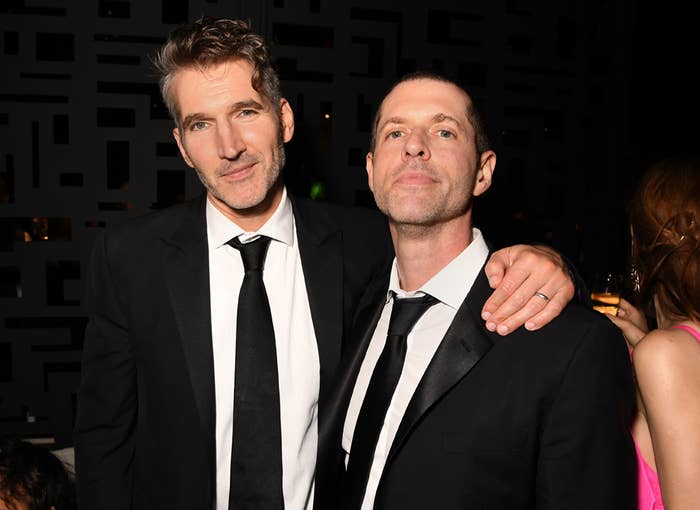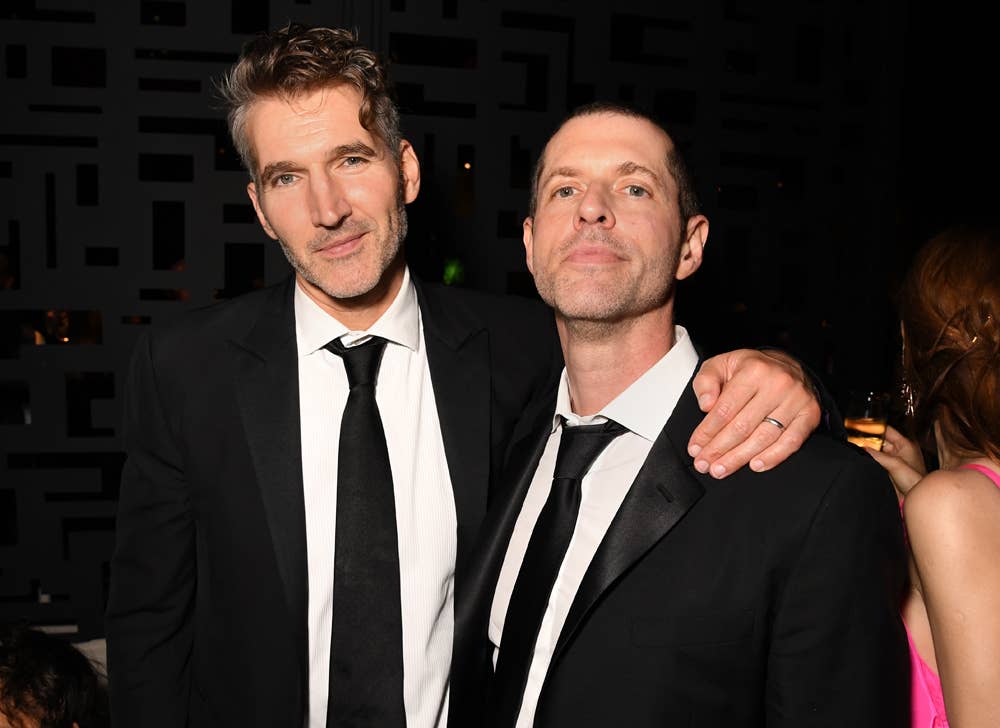
There’s been a disturbance in the force.
As reported earlier this week, former Game of Thrones showrunners David Benioff and D.B. Weiss have left their planned trilogy of Star Wars films, making for a fourth high profile departure from a Star Wars-related project since Disney’s acquisition of Lucasfilm in 2012. The company’s once lofty ambitions for stories in a galaxy far, far away seem to have changed dramatically and significantly in the proceeding years, leaving a great number of projects to cast out amongst the stars. Before we move forward and take a look at what’s next for Star Wars, it might also be helpful to take a look back and see how we’ve ended up here in the first place. It involves a classic tale of too much, too fast and bold ambitions, culminating with a timely reminder: The best-laid plans are great...until you get a punch in the mouth.
After their purchase of Lucasfilm, Disney quickly put together plans for a whole slew of Star Wars films. In winter of 2013, J.J. Abrams was hired to direct what would become The Force Awakens and a few weeks after, news came that there would be a number of franchise spinoffs. In 2014, the first of those spinoffs, Gareth Edwards’ Rogue One, was unveiled. News of Chronicle and Fantastic Four director Josh Trank’s hiring followed in June, and at the end of the same month, Looper director Rian Johnson was announced for Episode VIII. Things stayed quiet from there until July of 2015 where we had news the 21 Jump Street duo of Christopher Miller and Phil Lord would tackle the Han Solo movie. Finally, in August of 2015, Jurassic World director Colin Trevorrow was set to direct Episode IX. In the span of two years, Disney had thrown together an extremely ambitious plan for six different Star Wars related films. Once you include the eventual announcements of Rian Johnson’s standalone trilogy in 2017 or the Beinoff and Weiss set of movies in 2018, the total count doubles to 12.
The Force Awakens was released to great reviews and fans were excited about all of these announcements. In short, everything was going great—until it didn’t.
The cracks started to show with two incidents. First, was Josh Trank’s exit, citing a “personal decision,” to leave his project in May of 2015. However, The Hollywood Reporter had a story detailing Trank’s “unusual conduct” during the production of Fantastic Four led Disney and Lucasfilm to push the filmmaker out the door. Secondly, production on Rogue One was more turbulent than anticipated. During the summer of 2016, Disney stated the film was going to need reshoots to better address the tone of what a “‘classic’ Star Wars movie should feel like.” Reshoots aren’t uncommon on big blockbuster movies of course, but a subsequent report in August escalated the situation, claiming writer Tony Gilroy was going to be taking on more than just the (at that point) uncredited rewrites he’d been working on up to that point.
However, the dramatic event was Lord and Miller’s very public dismissal from Solo: A Star Wars Story in June of 2017. The story has been well told, but to summarize: the duo and Lucasfilm head Kathleen Kennedy didn’t see eye-to-eye, citing “deep fundamental philosophical differences” and “zero creative freedom” when it came to the filmmaking style of the project. Industry stalwart Ron Howard replaced the two, and charted Solo to success, albeit not the kind of financial success seen from other installments. It went on to make $392 million, a steep decline from the billion-dollar worldwide grosses of The Force Awakens, Rogue One, and The Last Jedi. This would be followed by the news a few months later that Colin Trevorrow would be exiting Episode IX, citing eventual creative differences and, perhaps, the absolute failure of his critically-panned film The Book of Henry.
As production on Episode IX ramped up, with Abrams returning the fold to direct the last installment of the Skywalker saga, Disney eventually decided to pump the breaks on the “Star Wars Story”-branded spinoffs, focusing instead on the set of films being developed by Benioff & Weiss and Johnson, as well as various Disney+ television projects including the upcoming Mandalorian, Obi-Wan, and Cassian Andor series. It was revealed just a few weeks ago that Marvel Studios mastermind Kevin Feige would develop a Star Wars movie of his own. In short: things looked like they were in the clear...until this week’s news.
Much has been speculated about the departure of Benioff & Weiss, but according to a new report from Variety, it looks like the duo’s departure was two-fold: Their planned set of films would focus on the origins of the Jedi, but as production went along, Lucasfilm and the writers “began to see their visions for the films diverge.” Plus, it didn’t help that the duo had a massive, $250 million deal with Netflix that’s bound to take up a considerable amount of their time and attention. The Variety report seemingly confirms that, addressing the fact that the streaming giant was getting “wary of waiting as much as four years” for D&D to finish up their commitment to Disney. Kennedy’s statement made the breakup seem completely amicable, but additional reporting has made it seem there’s at least a chance Kennedy and crew were skittish about the duo’s continued involvement. Between a decidedly fan negative reaction to the Game of Thrones finale and fan’s umbridge to elements of The Last Jedi, it could be interpreted the studio was looking to avoid another firestorm.
Regardless, what was once a bright and bold future for Star Wars is now one that’s a little less clear— especially when it comes to projects on the silver screen. Disney themselves have admitted that all the spinoffs were perhaps too much too soon, but it feels like the damage has been done. Right now, the only current film project on the horizon is Rian Johnson’s trilogy and Feige’s movie. Fans of the former should breathe easy, as the director told Entertainment Tonight last week he was “still working with Lucasfilm” on the project. But what was once a full slate of films has been considerably reduced. All this back and forth doesn’t seem to have made much of impact on the general movie-going public, as advance ticket sales for The Rise of Skywalker are higher than any other Star Wars movie to date. While sales are good for Disney’s bottom line, the internal turmoil might be enough to turn off some creatives in the industry from working with the studio...or it might just be that Kathleen Kennedy knows how to shepherd this brand better than anyone else and is just as particular about her version as, say, Kevin Fiege might be. Don’t forget that Marvel isn’t without its own controversies: Edgar Wright did leave Ant-Man, James Gunn was fired (and eventually rehired) from Guardians of the Galaxy Vol. 3, cast members have been replaced, and so on.
The business of making movies has always been messy and difficult, we’re just more aware of the process now. This decade has fundamentally changed the way we consume media, and with it, the business of making said media. With a declining box office turnout, franchise films are some of the only movies that get butts into seats, which means there’s so much more riding on the release of something like Solo than there would have been previously. Mix that all together and you’ve got yourself a potent cocktail that leads studio heads like Kennedy to tough—and often very public—decisions. But if there’s one thing that Star Wars has proven, it is this: a good story in this universe can make a truly generational impact on popular culture. Sure, the force woke back up a few years ago, but maybe it wouldn’t be the worst thing in the world if it decided to nap for a while...until it has a story that’s worth telling—and worth telling right.

